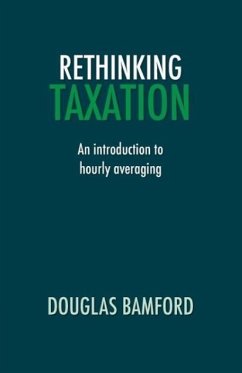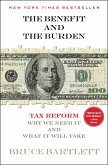This book presents a new proposal for calculating personal taxation, hourly averaging. This works by taking account of the number of hours people have worked in their adult lives. Doing so enables the tax system to directly reward those who work longer for their income, and can also be used to provide a highly targeted earning subsidy. Taking account of the hours that people have worked when calculating tax and benefits ensures that these do not create the disincentive to work that is usually associated with such programmes. By building incentives to work into the system it should be possible to tax the most economically fortunate members of society at the higher rates and provide more assistance to low earners, without causing the economic damage usually associated with such policies. Hourly averaging can be applied on a whole adult lifetime basis. This further reduces the economic disincentives of taxation and benefit payments, and makes it more accurate in determining the most and least economically fortunate people in society. The book also proposes a novel form of tax base, the acquired income tax base. This combines features of comprehensive income and consumption taxation in order to determine the value of the resources that everyone gets out of society before and after tax. This tax base complements hourly averaging very well and together these proposals can be referred to as the CLIPH-rate tax. CLIPH stands for Comprehensive Lifetime Income per hour, and the first two parts of the book explain and defends this proposal. The book sets out what the CLIPH-rate tax is, why it is such a good idea, and how to introduce it. As well as explaining the new proposals, the book anticipates some possible objections to the scheme and responds to these.








